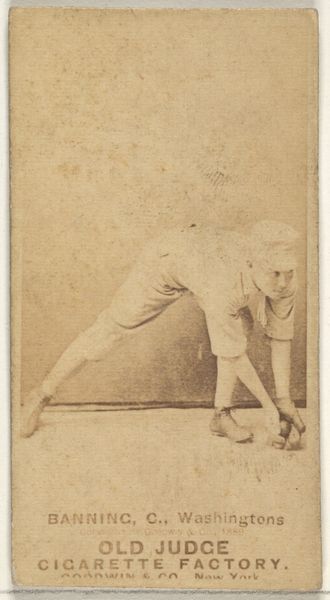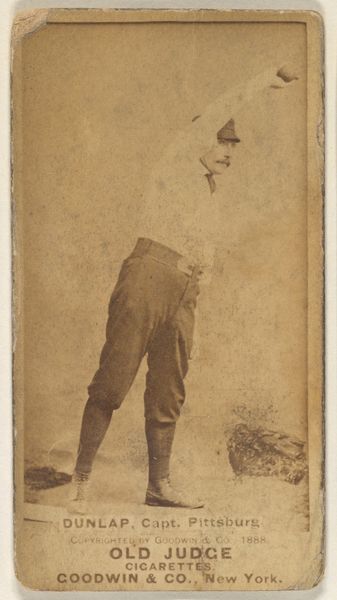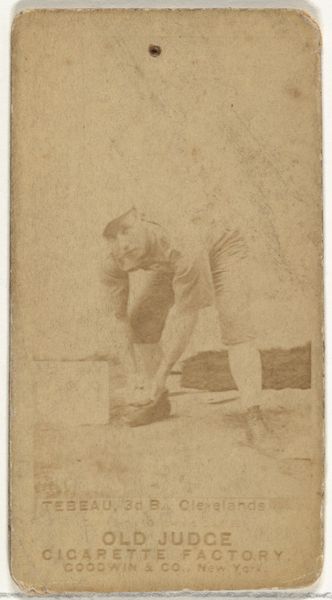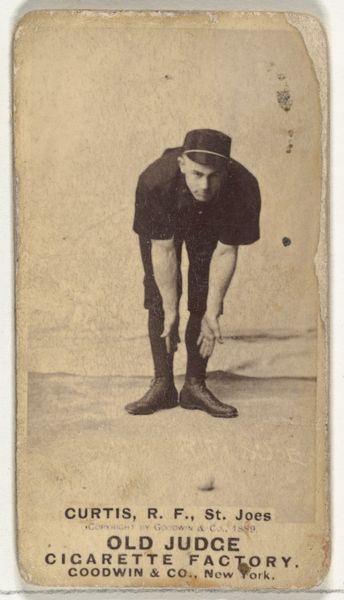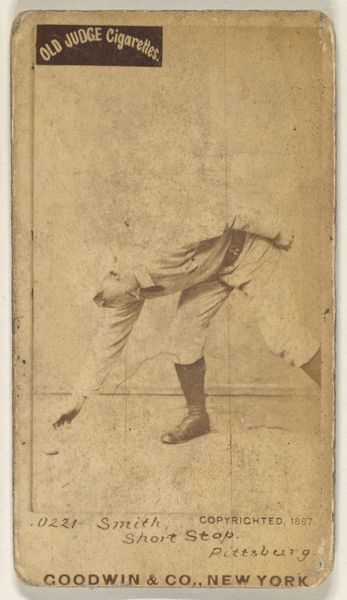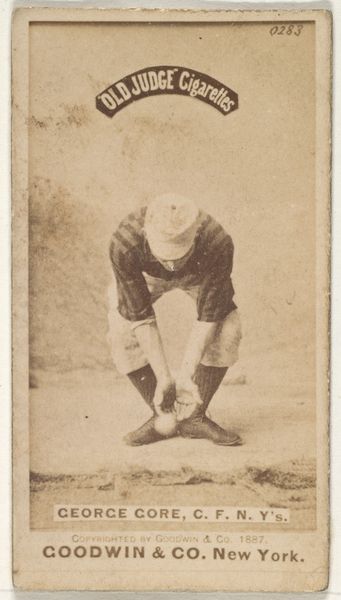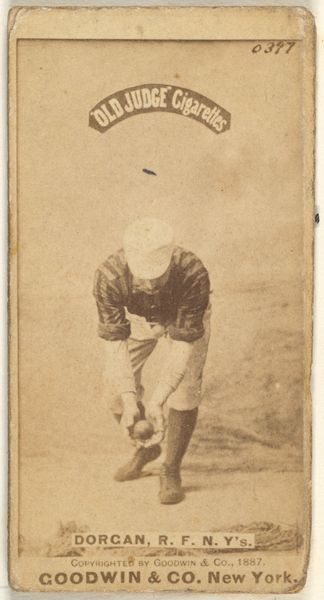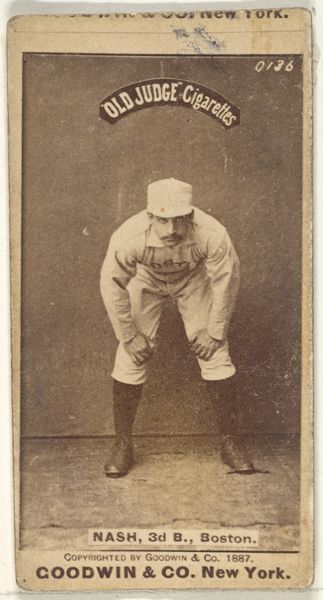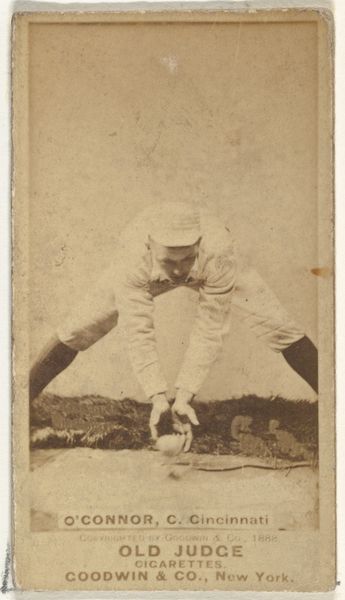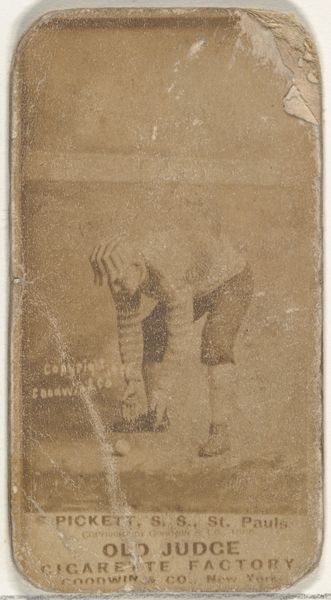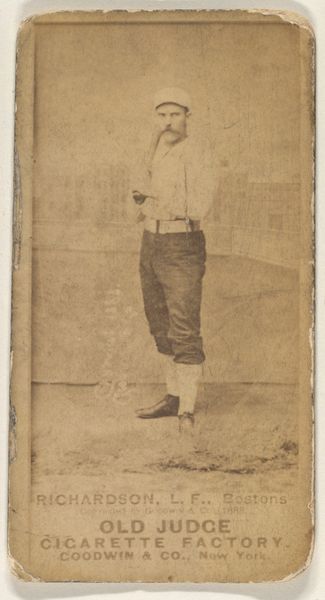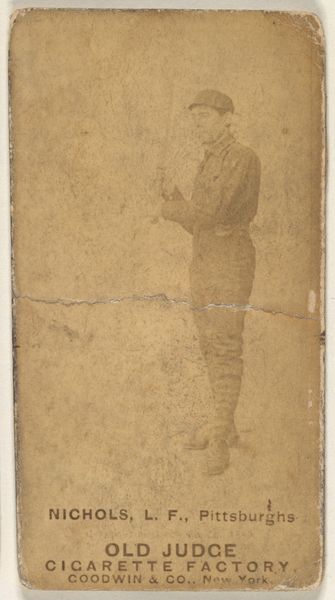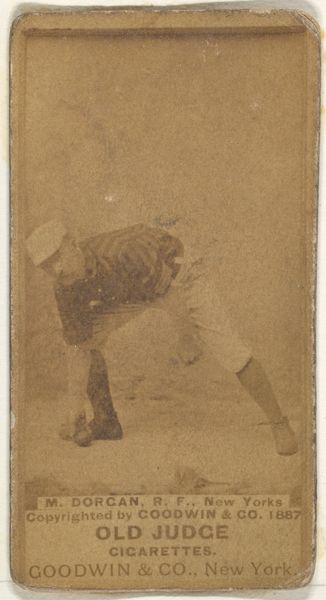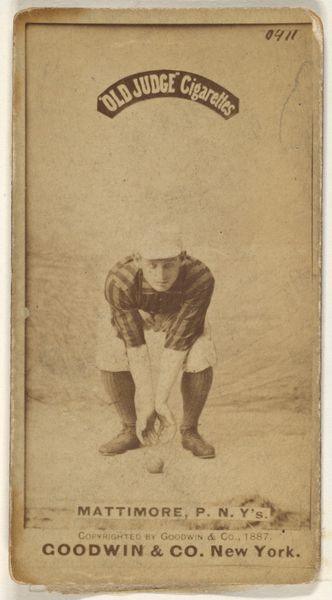
Frank Scheibeck, Shortstop, Detroit Wolverines, from the Old Judge series (N172) for Old Judge Cigarettes 1888
0:00
0:00
print, photography
#
portrait
# print
#
baseball
#
figuration
#
photography
#
men
Dimensions: sheet: 2 11/16 x 1 3/8 in. (6.9 x 3.5 cm)
Copyright: Public Domain
Curator: We’re looking at a fascinating artifact of late 19th-century American culture: a baseball card featuring Frank Scheibeck, a shortstop for the Detroit Wolverines. The card comes from the Old Judge series, N172, produced in 1888 by Goodwin & Company as advertising for their Old Judge Cigarettes. Editor: It’s the sepia tones that first grab me—almost dreamlike. The pose, too, feels surprisingly vulnerable. He’s crouched, lacing up his glove. It is a powerful study of ritual before action. Curator: Precisely! These cards were immensely popular and contributed significantly to the commercialization and popularization of baseball. The image helped cement baseball as America's pastime. The mass production of these images is crucial to consider here. Editor: I find it compelling how this photograph elevates the simple act of preparing for a game into an almost iconic gesture. The laced gloves are visually reminiscent of bound feet in old East Asian cultural artwork, an oblique symbolism relating to the player being about to engage fully in something greater. Does the lacing action represent this player binding himself in spirit? Curator: An interesting take! I lean more towards considering this from the lens of production, consumption, and baseball’s transformation into a major commercial enterprise. It highlights how corporations shape national pastimes for profit. We shouldn’t forget this photograph lived in a series of many identical others. Editor: Of course, but consider the implications. Scheibeck and his baseball equipment take on added layers of meaning; in a way, they encapsulate the values of the era itself - diligence, preparation, and the looming potential for action within the rigid confines of established play. It gives him an aspect larger than any Detroit player, even still to this day. Curator: Yes, while appreciating its artistry, we must also remember the political economy around its creation and the fact that advertising for harmful products made this photograph available to so many consumers. Editor: A fair and needed reflection, certainly, reminding us to carefully engage these nostalgic echoes from the past.
Comments
No comments
Be the first to comment and join the conversation on the ultimate creative platform.
